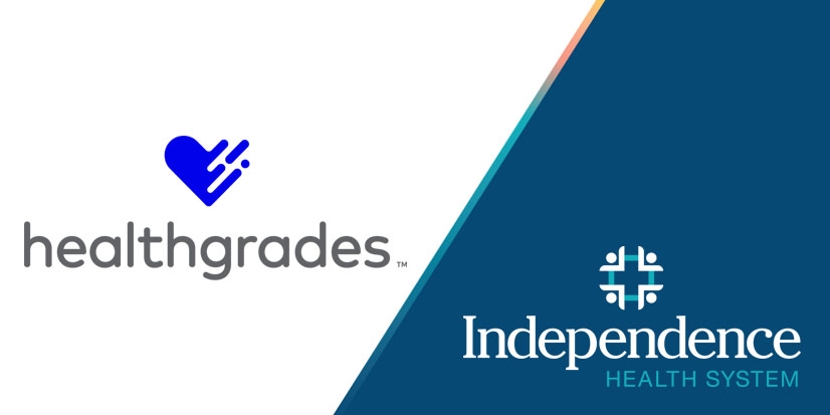Excela Health Uses Ventilation Technique for First Time in Assisting With Premature Baby’s Breathing
- Category: Media Release
- Posted On:
GREENSBURG, PA, February 7, 2020 – A bubble Continuous Positive Airway Pressure (bCPAP) respiratory aid was used for the first time by Excela Health’s clinical team within the health system’s Special Care Nursery after the birth of a premature baby on February 3, 2020.
Parents Ian and Samantha Wirth of Hempfield Township welcomed 5-pound, 12-ounce baby Ayla in the early hours that day, when she arrived early at 35 weeks gestation – or five weeks pre-term – and required the assistance of the non-invasive ventilation system.
Neonatologist Andrea Willeitner, MD, IBCLC, FAAP, who is Medical Director of Excela Health’s Level II Special Care Nursery said: "Given the high oxygen requirement, this the baby was on the trajectory to be transferred to Children's Hospital (in Pittsburgh) had this treatment not been available at Excela Health for her care.
“The parents and the baby would have been separated, which is physically and emotionally taxing and the cause of additional stress on the newborn and mother alike."
Excela Health was equipped to handle this situation because of the portable bubble CPAP system, of which there are two units for infants as part of the Family Additions Maternity Center located at Excela Health Westmoreland in Greensburg.
"Bubble CPAP is both gentle and efficient for those who would otherwise be needing ventilation, which can be quite traumatic for a newborn,” said Dr. Willeitner.
The bCPAP delivery system uses a humidified gas source, an interface that connects the CPAP circuit to the infant’s airway through short nasal prongs, and an adjustable CPAP generator filled with sterile water. As the gas exits the generator, bubbles are created that, in turn, produce small airway pressure oscillations. When these oscillations reach the baby’s lungs, the result is the improved gas exchange and lung function.
The noninvasive bubble CPAP represents a quality improvement and is regarded as a safe and effective method of respiratory support for spontaneously breathing babies. In the decades since its inception, bCPAP technology has saved thousands of newborns with severe respiratory illnesses, according to a report in RT Magazine for Decision Makers in Respiratory Care.
“While bubble CPAP therapy has been around for a long time, it has been rediscovered in the past several years as a gentle and effective treatment for babies," said Dr. Willeitner.
Under Dr. Willeitner’s guidance, bubble CPAP protocol development began at Excela Health more than a year ago, with staff training following, according to System Director of Respiratory Care Jeff Oliver, RRT/RPFT.
“Among the benefits of bubble CPAP is that it is not an invasive mechanical ventilatory support, which means it can be implemented in level II NICUs, such as Excela Health,” added Dr. Willeitner, who noted its appropriateness for mid to late preterm births such as Ayla Wirth with respiratory difficulties after delivery.
Approximately 12 percent of babies in the United States are born prematurely each year and 10 percent of that number develops respiratory distress syndrome (RDS), according to the National Heart, Lung, and Blood Institute (NHLBI).
Once bubble CPAP was used following Alya Wirth’s birth, the lung function improved steadily and, after 24 hours, the newborn was able to breathe room air only. Since being weaned off of bCPAP, she met all benchmarks for a healthy infant including a good appetite. Her dad, Ian, is an ICU registered nurse with Excela Health at Frick Hospital and previously worked for Mutual Aid. Mom Samantha Wirth is a teacher at Armbrust Wesleyan Christian Academy.
Annually, more than 1,260 babies are delivered at Excela Health’s Family Additions Maternity Center, which also delivers award-winning quality care, individual sensitivity, professionalism, and expertise. Approximately 10 percent of those newborns require some type of intervention or special nursery care.
Excela Health, a 578-bed, tertiary-based health System in Westmoreland County, PA, includes three hospitals – Excela Westmoreland Hospital, Excela Latrobe Hospital, and Excela Frick Hospital – and serves more than 23,000 inpatients, 700,000 outpatients, and 100,000 emergency visits annually. With more than 700 physicians and allied health professionals and 4,800 employees, Excela is a regional leader in clinical areas such as Cardiovascular Disease, Orthopedics, and Emergency Medicine.
The System has been recognized by U.S. News & World Report among the nation’s
Best Regional Hospitals.
For more information, visit www.ExcelaHealth.org
Download PDF
